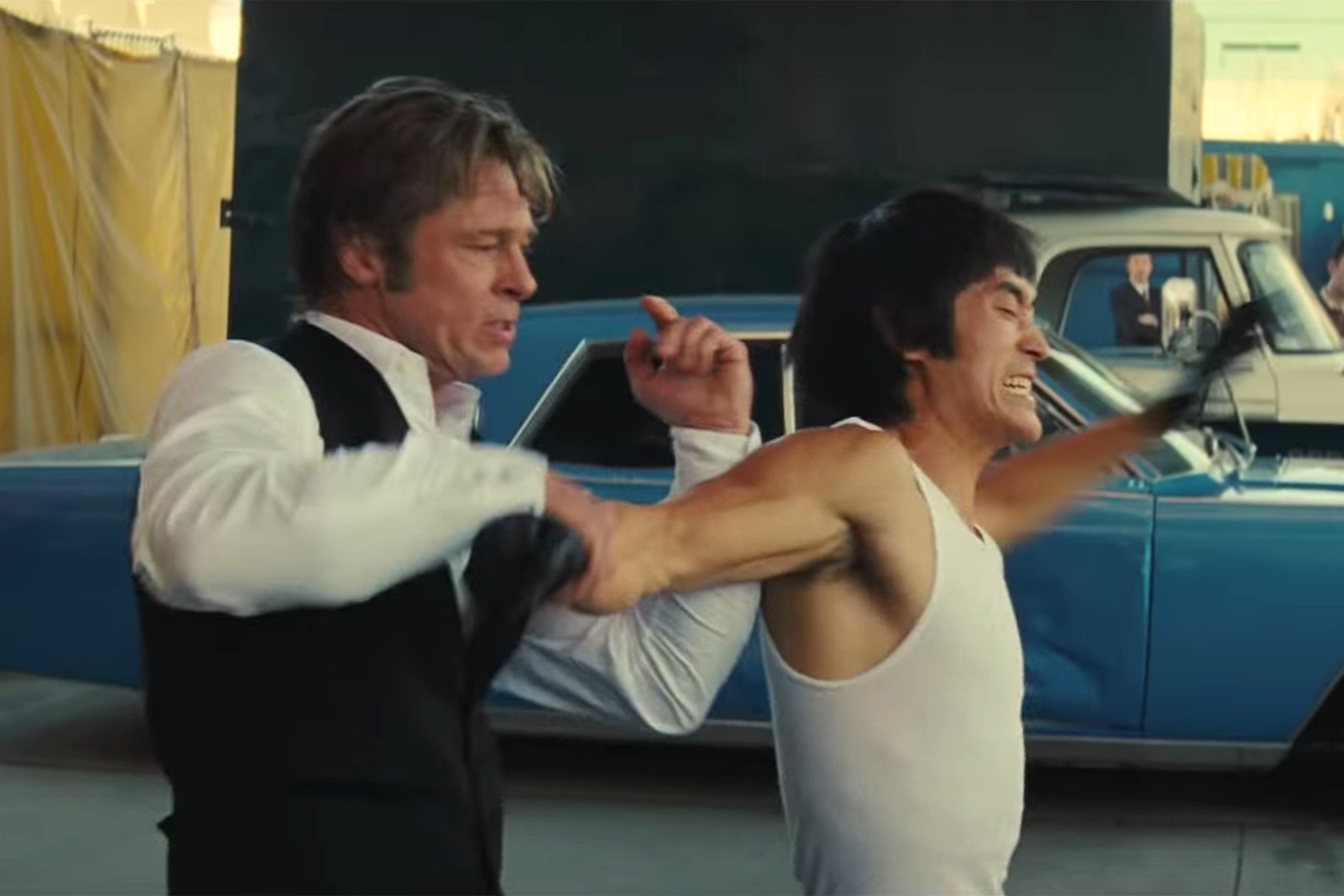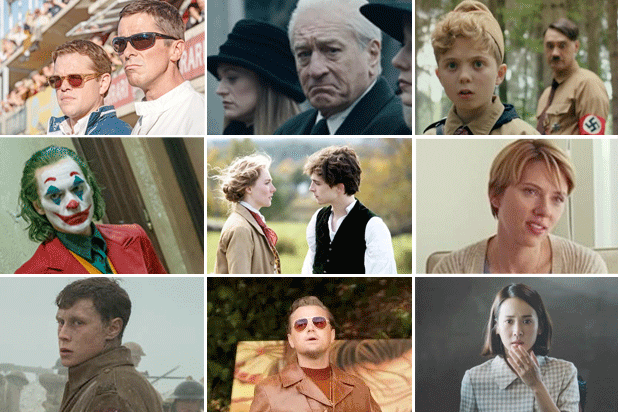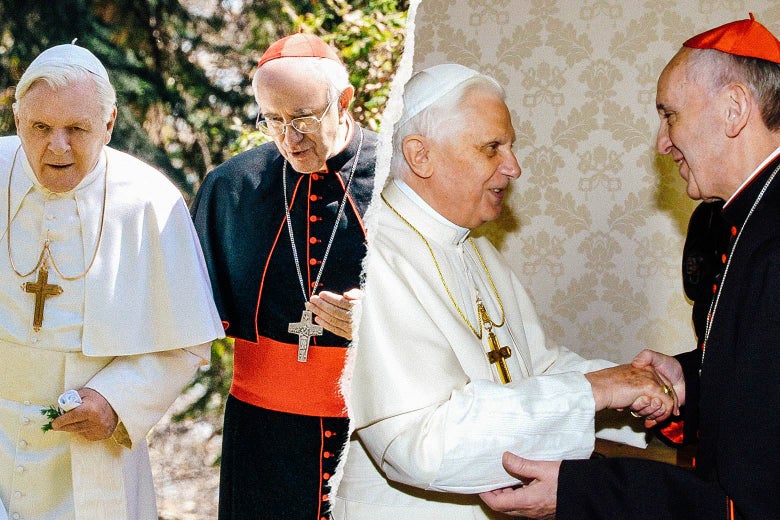
Warning: Spoilers loose here!
First, full disclosure: I love Once Upon a Time…in Hollywood. I think it’s one of the best movies of the year, one of Tarantino’s finest in a career of fine films, and as fitting an homage to Los Angeles’ Golden Age of film as any ever rendered. And it’s getting too much praise.
Hollywood has been nominated for 10 Oscars, and has already collected 102 trophies over more than a dozen award ceremonies, including the Golden Globes and the BAFTAs.
Those plaudits for the films aren’t the problem. The problem is the praise heaped on supporting star Brad Pitt. He, like the film, has been showered in praise and gold plating, nabbing a Best Supporting Oscar nomination and taking home supporting acting statuettes from said Globes/BAFTAs. Should Pitt win the Oscar, his first order of business should be to thank Tarantino for pulling off the greatest heist since Ocean’s Eleven. In fact, classic films were part of the heist.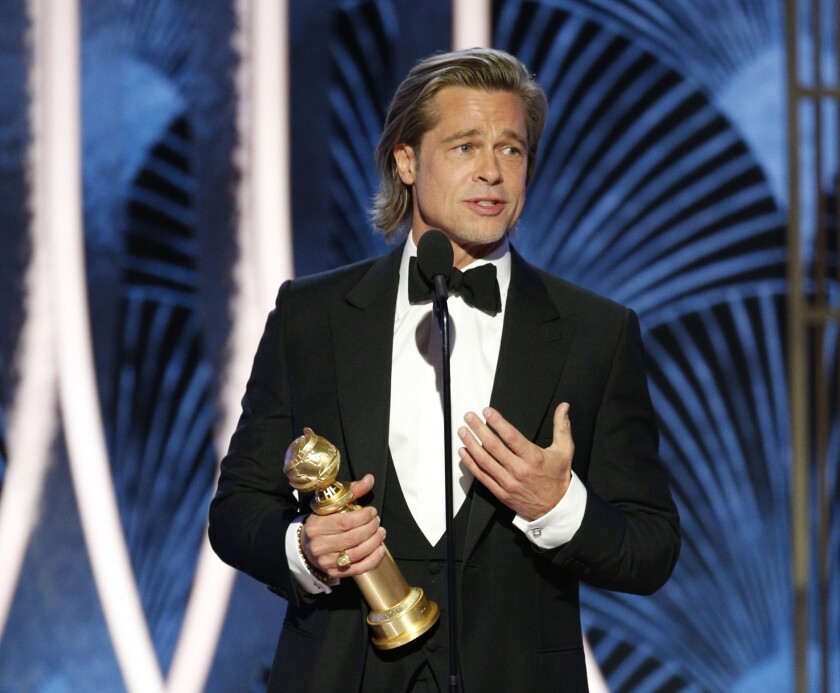
You see, Tarantino is this year’s Oscar’s darling for his love letter to 1960’s Hollywood, when the industry’s ability to sell a concocted happiness was at its peak. Families were nuclear and daddies knew best. Kids didn’t swear, adults didn’t screw, and cowboys didn’t miss or bleed (unless they were bad). Killers met with unfettered justice — often dealt out by likes of Rick Dalton, Tarantino’s leading man in Hollywood.
Dalton is one of those Bonanza cowboys, at least on the outside. Steady. Steely. Sure-handed. Inside, though, he’s a wreck. He drinks too much, swears up a storm, has a nervous stutter, and is having trouble coming to terms with age and relevance.
Now consider Cliff Booth, Pitt’s likable, buff stunt double to DiCaprio’s Dalton in Hollywood. Cliff is an understated Missouri boy who, in the span of three hours, saves his buddy’s career, kicks Bruce Lee’s ass in a street fight and single-handedly prevents the Manson family murders. He is as stalwart a Hollywood hero as any produced 50 years ago. And like all good 60’s movie cowboys, his acting sucks.
Like, really sucks. I challenge anyone who has seen the film: Name one scene in which Pitt is called upon to act. One scene in which he sheds a tear. Or loses his temper. Or becomes nervous, uncomfortable or caught unawares. He is Shane, mysterious, unflappable and Ivory pure.
This isn’t Pitt’s fault. He’s a solid actor (See Twelve Monkeys, Moneyball, The Curious Case of Benjamin Button). It’s just he’s playing John Wayne without the temper, and is never asked to express anything approximating range. Tarantino must know: DiCaprio acted circles around Pitt, gaining weight, shedding tears, allowing insecurities to surface. But while Pitt won honors, DiCaprio had to settle for honorable mentions among the Globes and BAFTAs.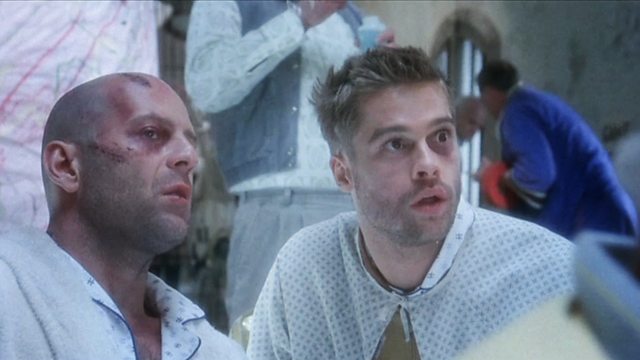
Not that anyone need shed a tear over Hollywood‘s fortunes. But if Pitt manages to pull off a win, and beat co-nominees Al Pacino, Anthony Hopkins, Joe Pesci and Tom Hanks, he should silently signal to Tarantino Sting-style, with a nod of the head and forefinger gently brushing his nose. 
Because that’s a helluva take.

